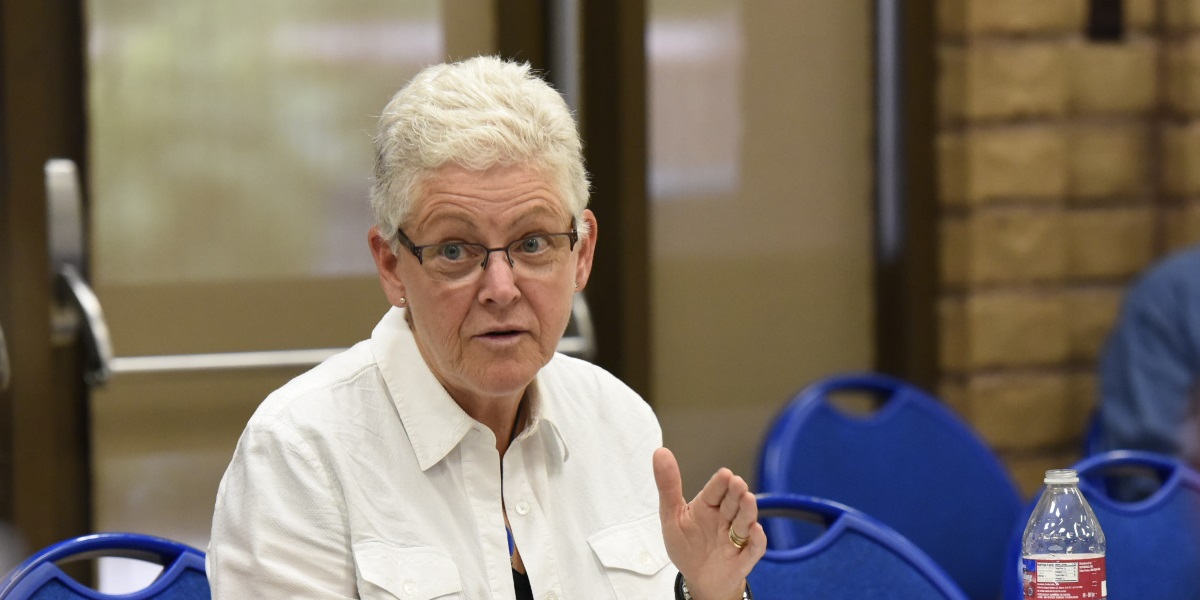Climate change, air quality and water pollution are not just environmental issues; they also affect people’s health.
In Atlanta, the city is working on cleaning up long-running issues of flooding and pollution in neighborhoods along Proctor Creek, on the city’s west side.
Georgia Power is beginning to close its coal ash ponds, which hold a byproduct from burning coal that can contaminate water.
Meanwhile, the state has stopped working on the Clean Power Plan, a key piece of the Obama administration’s climate change efforts. The U.S. Supreme Court said that it does not need to be implemented until the legality of the rule has been settled.
The head of the U.S. Environmental Protection Agency, Gina McCarthy, visited Atlanta Thursday to talk about the agency’s work in public health, and she spoke with WABE about all these issues.
Clean Water
“Our water infrastructure is in sort of serious need of consistent and larger investment moving forward,” she said. “I think ‘Flint’ is all I need to say to remind people that disinvestment has big costs associated with it.”
The Flint, Michigan problem is on the water supply side of the water system, with contaminated drinking water. Atlanta has struggled on the other side, with aging sewers.
The city is updating its sewer system, but big problems remain, especially along Proctor Creek, which begins near the Georgia World Congress Center, then flows northwest through the city to the Chattahoochee River. It picks up pollution along the way, and regularly floods in storms.
“When you have economically distressed communities like those around Proctor Creek here in Atlanta, you’ve got to look at those not just as obligations of government to actually provide some public needs that we all see are core values in our world, but they’re also our responsibility,” McCarthy said.
Coal Ash
“We just want to make sure that it’s properly handled,” said McCarthy.
Following huge coal ash spills – including one in Tennessee that flooded a river and even destroyed some houses – the EPA introduced two rules: one on how to store coal ash, and another that regulates water released from coal ash ponds back into the environment.
Georgia Power is now moving to close all of its coal ash ponds because of those rules. The utility hasn’t announced specific plans for where all of the coal ash will go; some of it will stay where it is, but not all.
There is also the potential for coal ash to be shipped to Georgia landfills from out-of-state utilities. And that’s led to a fight in Wayne County, Georgia, where a private landfill company hopes to bring in tons of ash.
“EPA’s not looking to shift any burdens associated with pollution,” McCarthy said. “We’re looking to reduce the burden overall.”
Climate Change
Georgia had been holding hearings with regulators, advocates and businesses to figure out how to implement the EPA’s Clean Power Plan. The rule would require states to reduce greenhouse gas emissions from power sources. In Georgia, that would likely include closing coal-fired power plants.
When the U.S. Supreme Court issued a stay on the rule in February, Georgia stopped all its work.
“We expected that the Clean Power Plan would go through the court system, so I don’t want people to get discouraged by that,” McCarthy said. “We feel very confident that it is legally solid and will stand the test of time.”
She said the goal of the Clean Power Plan was to usher in a shift towards renewable energy, and that has happened, despite the stay.
“If you take a look at Georgia, Georgia right now generates about 26 percent of its energy from renewable sources,” McCarthy said. That calculation includes nuclear power. “It is moving forward like gangbusters to embrace the clean energy future that we need.”


9(MDAxODM0MDY4MDEyMTY4NDA3MzI3YjkzMw004))






